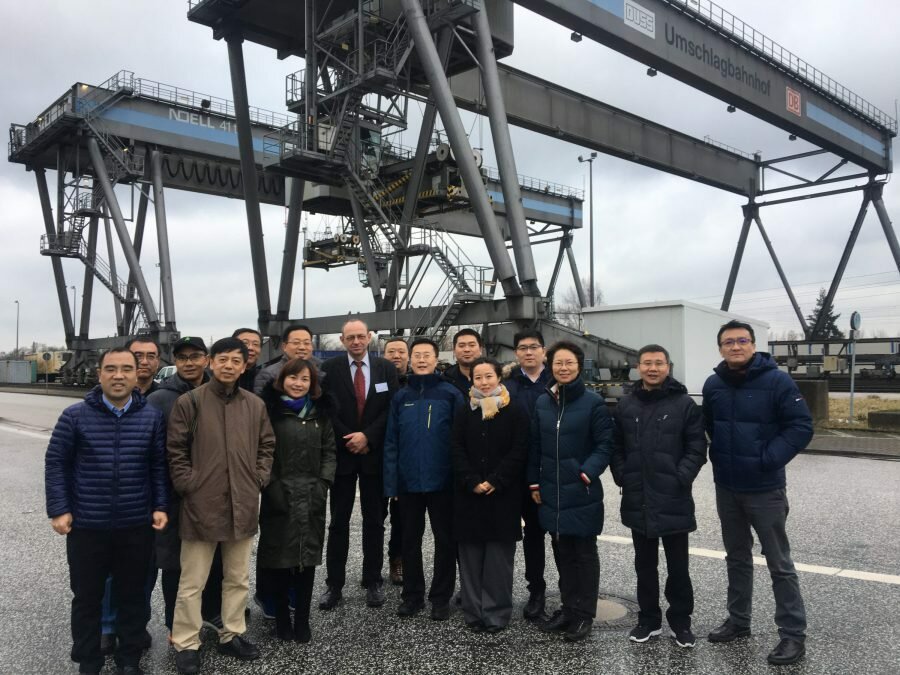Intermodal freight transport (combined transport) is one pillar of the shift approach within climate action strategies to make freight transport and logistics greener and more sustainable, thus effectively meet the targets of the Paris Agreement. Using combined transport means shifting road freight transport to more CO2 efficient modes such as rail or waterborne transport and therefore significantly reduces CO2 emissions and the energy consumption per loading unit. With growing freight volumes – not only in China but also in Germany and many other economies around the globe – and the shift away from large-scale bulk goods towards the small-scale cargo of higher value goods, all stakeholders in the logistics chain are challenged to optimize their operation and resource allocation to provide a sustainable and competitive service. To promote intermodal freight transport especially policy makers, infrastructure providers and managers, railway undertakings, combined transport operators, terminal operators as well as road haulage…
The pressure on policy makers in China to increase the efficiency of freight transport is high. A high dependency of the freight transport sector on imported fuels, major concerns of transport-related air pollution and continuously growing carbon dioxide emissions exacerbate the pressure. Currently, the freight sector is developing towards an unsustainable direction. The modal share of rail transport halved between 2004 and 2014 while the share of road freight transport tripled. Neither waterway nor rail transport are at this stage competitive to the road sector in terms of speed, flexibility, accessibility and reliability. The rail network is utilized to a large extent to transport mass goods such as steel and coal. Both the infrastructure and railway operation of the railway transport are designed to transport bulk rather than provide intermodal solutions for containers. The consequences are severe: the freight transport caught up with the road passenger sector in terms of…
On 2nd December 2014, GIZ and Scania China jointly organised the workshop on “Transforming and Upgrading of Road Freight Sector – Vision of Vehicle Equipment” in Beijing. The workshop aimed at sharing experience and enhancing the discussion amongst various stakeholders and actors on application of vehicle equipment in the road freight sector. 40 representatives from ministries, transport enterprises, OEMs, industry associations, research instituts and universities participated in the workshop. By the end of 2013, a total of 7,45 million companies were working in the road freight transport sector, of which 6,79 million are operators with only one or two trucks. 141,9 million trucks have reached a transport volume of 30.7 billion tonne and 5573.8 billion tonne kilometers, that’s an account of 78% and 36% modal share. “We are facing enormous challenges because of the continued increase of the road freight transport. The sector should take initiative to pursue a more efficient and sustainable…
